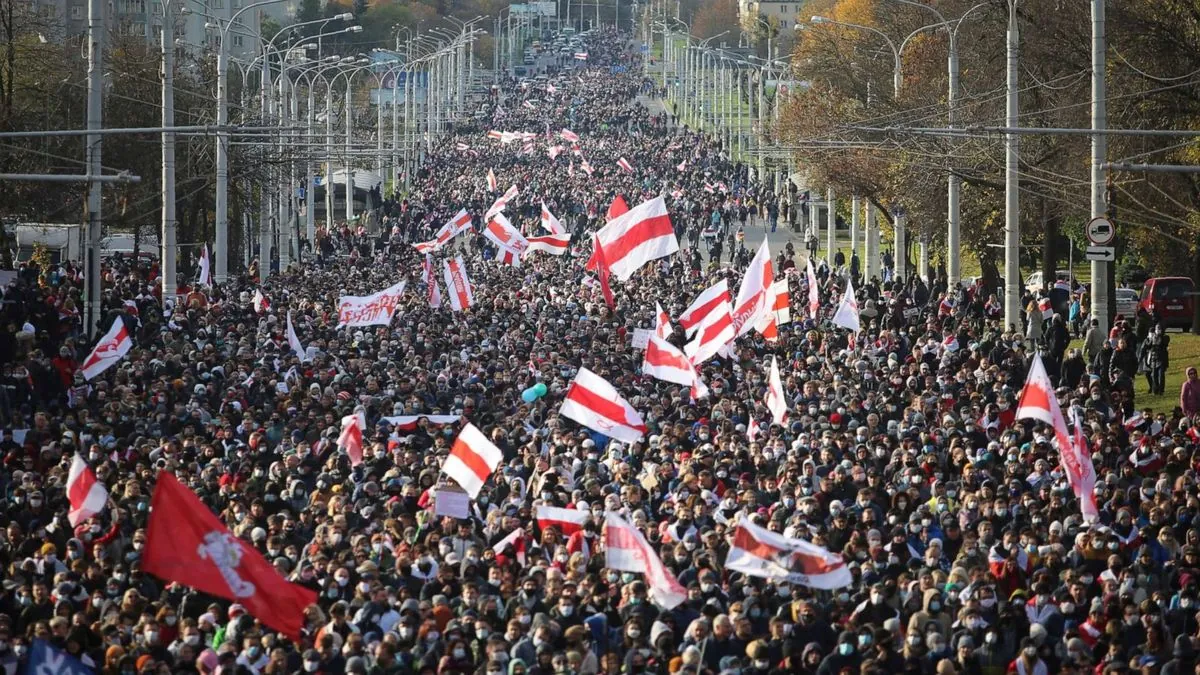In the past four years, more than 500,000 Belarusians have left their homeland, escaping the harsh crackdown on political opposition by the authoritarian government. However, many are discovering that even abroad, they cannot evade intimidation and threats from the regime of Alexander Lukashenko.
Lukashenko, who has ruled Belarus for over 30 years, is preparing for his seventh term in the upcoming 2025 election. As part of his strategy to maintain power, the government is intensifying its efforts to suppress opposition support from abroad.
The situation for Belarusian exiles is becoming increasingly precarious. Sviatlana Tsikhanouskaya, the main challenger to Lukashenko in the 2020 election, reports that her office receives hundreds of monthly requests from Belarusians abroad who claim criminal cases have been opened against them in their homeland. The opposition is intervening in at least 15 countries where extradition requests have been made.
"Ahead of the 2025 campaign, repressions against Belarusians abroad will most likely only intensify as the regime tries to intimidate those who call for increased international sanctions and nonrecognition of Lukashenko's legitimacy."
The Belarusian authorities have employed various tactics to pressure dissidents abroad:
- Issuing international arrest warrants
- Making extradition requests
- Invalidating identity documents
- Pressuring relatives at home
- Conducting surveillance and infiltrating diaspora communities
- Initiating criminal cases against exiles
These actions have led to numerous incidents of intimidation and arrests. For instance, Andrei Hniot, an independent director critical of Lukashenko, was arrested in Belgrade in 2023 on an Interpol warrant. Despite intervention from European Commission President Ursula von der Leyen, Hniot remains under house arrest in Serbia.
The Belarusian government has also declared opposition-created "people's embassies" in 24 countries as extremist groups, making cooperation with them punishable by up to seven years in prison. This move further isolates Belarusians abroad and complicates their efforts to protect their interests.
Exiles face additional challenges, such as the requirement to renew passports inside Belarus, which puts many at risk of prosecution if they return. Children born abroad to parents unable to return face potential statelessness due to difficulties in obtaining citizenship documentation.
The international community has expressed concern over these actions. Anaïs Marin, the U.N. special rapporteur on human rights in Belarus, has highlighted the potential for statelessness among children of exiles. Meanwhile, human rights organizations continue to document the regime's abuses, with over 65,000 people arrested in the past four years according to the Belarusian human rights group Viasna.
As the 2025 election approaches, the situation for Belarusian exiles remains precarious. The international community faces the challenge of protecting these individuals while addressing the ongoing human rights violations in Belarus itself.
